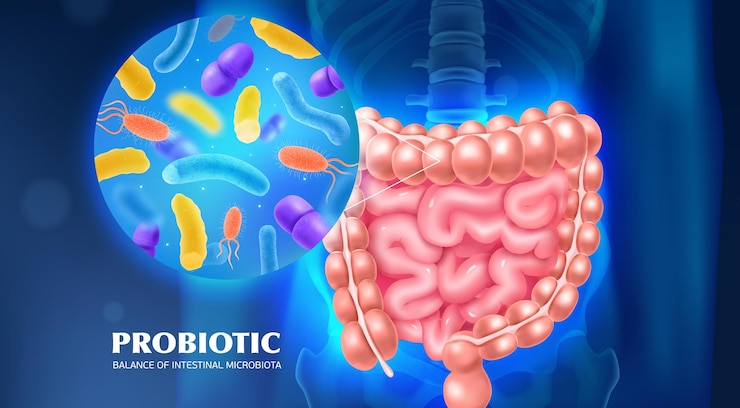
Probiotics have become a hot topic in health discussions. While many studies highlight their benefits, particularly for issues like bacterial vaginosis in women, there’s also evidence that under certain circumstances, probiotics might cause harm. So, how do we find the balance between good and bad? Ultimately, the decision to use probiotics is yours, but understanding the findings and weighing the potential benefits against the risks can guide you.
What We Know So Far
The Benefits
Probiotics have shown remarkable potential in addressing various health issues, such as:
– Digestive health: Conditions like diarrhea (due to antibiotics, chemotherapy, or travel), irritable bowel syndrome (IBS), inflammatory bowel disease, and constipation.
– Infant health: Issues like colic, sepsis, and necrotizing enterocolitis.
– Dental concerns: Periodontal disease and dental caries.
– Allergies and skin health: Allergic rhinitis, atopic dermatitis, and acne.
– Urinary and vaginal health: Urinary tract infections, yeast infections, and bacterial vaginosis.
– Respiratory and liver health: Upper respiratory infections and hepatic encephalopathy.
Specific probiotic strains like Lactobacillus Acidophilus and Bifidobacterium Bifidum are often included in supplements designed to promote gut health and support overall well-being.
The Risks
However, there are valid concerns about probiotic safety. For one, probiotics could interact negatively with certain health conditions. For instance, cancer patients undergoing immunotherapy may experience reduced effectiveness of treatment when taking probiotics. Similarly, individuals with high-sugar diets might face increased lactic acid production as a side effect.
Another major issue is the lack of regulation. Many probiotics are sold as dietary supplements, meaning manufacturers have significant freedom in choosing strains, dosages, and production standards. This has led to a flood of unregulated products that sometimes fail to deliver advertised benefits or meet minimum safety standards.
Without proper oversight, the market is full of products promising excellent results but often delivering subpar or no effects at all. The fact remains: careful consideration is needed when deciding whether or not to include probiotics in your routine.
Finding Balance: Are Probiotics Worth It?
The idea is not to see probiotics as strictly good or bad—their effectiveness depends on your health status, the type of probiotic, and how it’s used. If you’re mindful of the potential risks and take active steps to mitigate them, you can enjoy the many potential benefits. Here’s how:
Tips for Safe Probiotic Use
1. Understand Your Health
Before starting any probiotics, be sure you’ve received a clear diagnosis. If you’re healthy, you’re less likely to experience side effects. However, if you have a serious medical condition or are undergoing treatment, probiotics could interfere with your recovery. Discussing your options with a healthcare professional can help you choose a formula that aligns with your needs and reduces risks.
2. Pick the Right Strains
Different probiotic strains serve different purposes. Some supplements combine many strains, while others focus on just one or two. A blend is often more practical, but it’s essential to choose strains backed by research. Common, well-studied strains include Bifidobacterium Bifidum, Lactobacillus Acidophilus, Lactobacillus Rhamnosus, Saccharces Boulardii, and Bacillus Coagulans. Newer and less-researched strains, such as Clostridium Butyricum, should be approached cautiously.
Additionally, a product that includes prebiotics (symbiotics) is often preferable, as prebiotics help feed the probiotic bacteria, ensuring they remain effective in your gut.
3. Choose a Quality Product
Not all probiotic supplements are created equal. Look for products with the following features:
– Manufactured in a GMP-certified facility by a trusted company.
– Verified by third-party testing.
– Developed by experts like doctors or microbiologists.
– Targeted formulas designed for specific health benefits.
– Free from allergens, GMOs, and unnecessary additives.
– A guarantee of live, viable strains.
– Positive customer reviews from reliable sources.
Final Thoughts on Probiotics
Probiotics can offer significant health benefits when used appropriately. They’re often a gentler alternative to harsher treatments like antibiotics. However, they aren’t without risks, so it’s essential to stay informed and take the right precautions.
By following the steps above—understanding your health, selecting the right strains, and investing in high-quality products—you maximize your chances of reaping the benefits while minimizing potential downsides. Most importantly, monitor your body for any unexpected reactions, and don’t hesitate to consult a doctor if something feels off. Probiotics can be a powerful tool in your wellness journey, but as with anything, it’s better to play it safe!